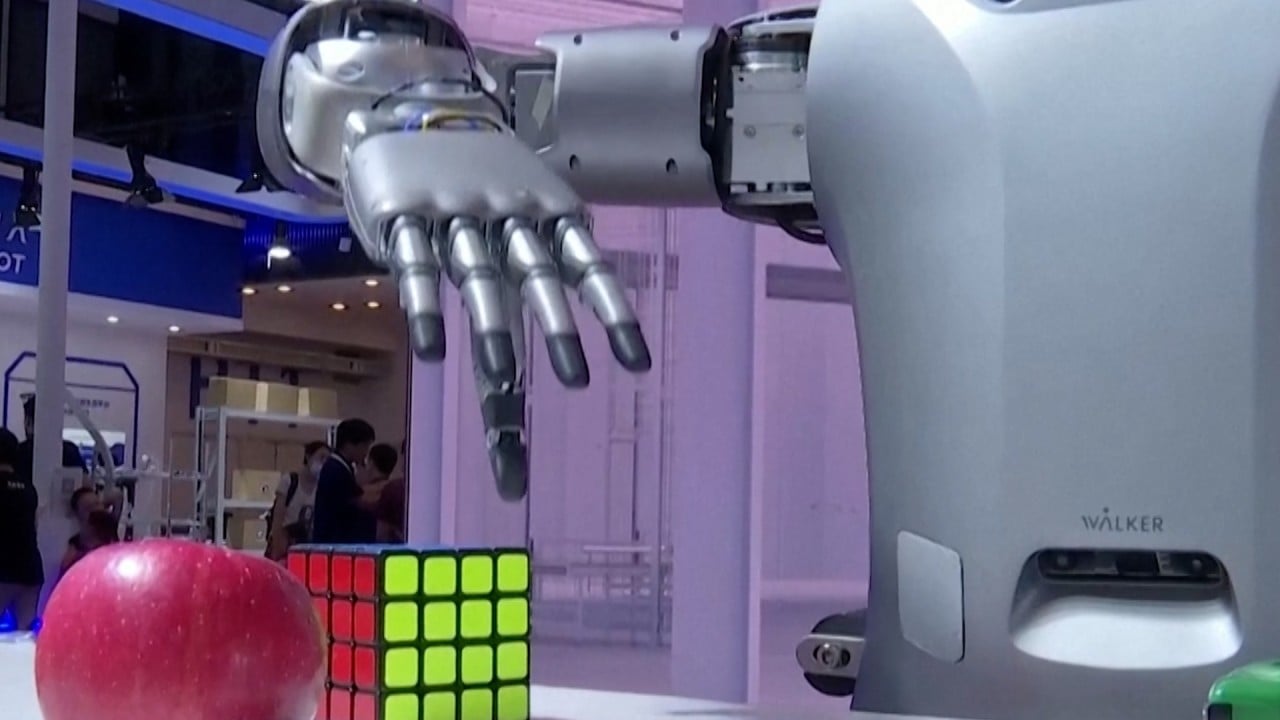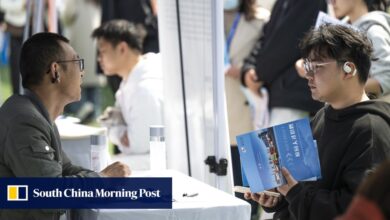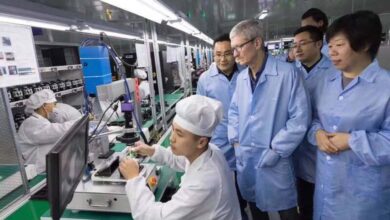China’s AI start-ups have ‘no choice’ but to explore overseas markets despite challenges

“Right now, the entire AI industry is shaped by two ends- the US and China.”
While Beijing identified home-grown hi-tech sectors as key to growing its slowing economy, domestic barriers- including censorship that limits AI generated content – have weighed on development, on top of US export controls that bar Chinese firms from accessing frontier software and hardware to advance their products.
“The initial stage was like the qualifiers, but in the next stage, firms that have built a good foundation and ability should proactively engage in international competition,” Peng said on the last day of the three-day expo, which hosted a tech start-up competition that awarded 200 firms more than 7,000 different prizes this year.
Yuan Jinhui, co-founder and CEO of Chinese AI start-up SiliconFlow, who spoke during the same panel, said that even if the US was a difficult market to enter, it was still crucial.
“For reasons that are obvious to everyone, the US is not too welcoming to Chinese [tech] companies. So we serve that customer base through authorising our products or through direct sales,” Yuan, whose company specialises in designing large-scale AI model inference, said.
Yuan, whose company also has business in Japan, South Korea, India, Southeast Asia and the Middle East, said the overseas market was crucial because of higher profit margins.
“It is now a trend that many Chinese start-ups define themselves as global corporations and are heading for the overseas market from the start. It is easiest to first start with commercialising your product overseas and then develop one in the domestic Chinese market,” added Yuan.
“No matter if your target audience is business or consumers, in terms of profit, the overseas market is much better than [in China] domestically.”
Ma Jie, co-founder of Beijing-based AI unicorn 01.AI, told the panel that while the overseas market was important, firms faced challenges to localise products to make them relevant.
We have to be determined, going overseas is not a matter of choice, it is something that we must do
“When we arrive at a place, there are quite a number of challenges that should not be taken lightly,” said Ma.
“01 is doing business in the Middle East. But their political, religious and cultural contexts are complex, and the variety of the Arabic language is wide.”
The firm, founded by venture capitalist and former president of Google China, Lee Kai-fu, is focused on building large language models, which train computer algorithms to read, understand and produce humanlike text, images and codes.
“So if we look globally, many countries actually require products that are made to fit them,” he added.
Meanwhile, Peng from MiniMax said developing overseas markets was more than just about developing business, but also had a national strategic perspective “including promoting ideology and Chinese culture”.
“We have to be determined, going overseas is not a matter of choice, it is something that we must do,” he said.
MiniMax’s Talkie AI, which allows users to interact with virtual chat bot characters, ranked inside the top five among the most downloaded free entertainment apps in the US in June, according to market research firm Sensor Tower.
Source link




